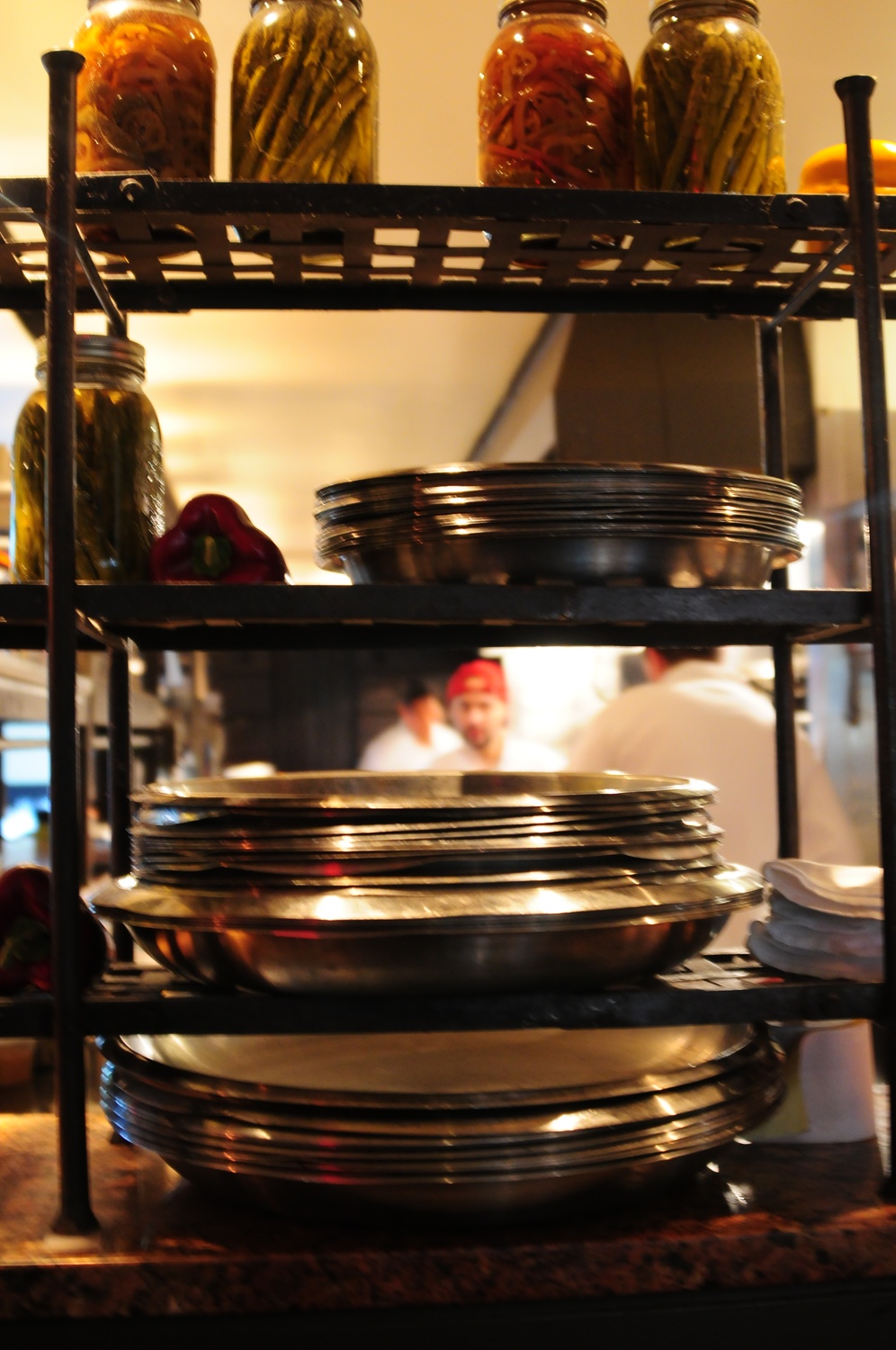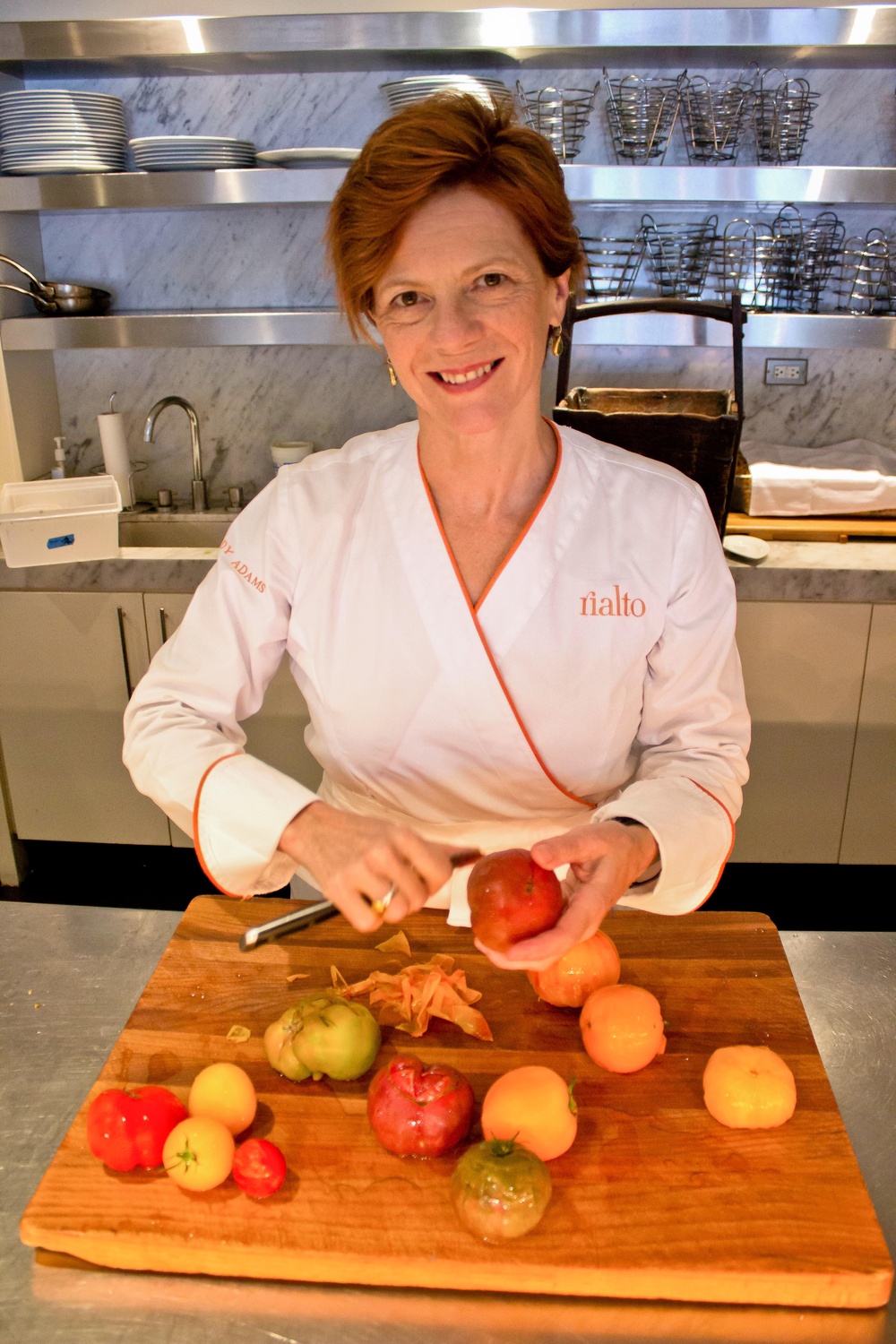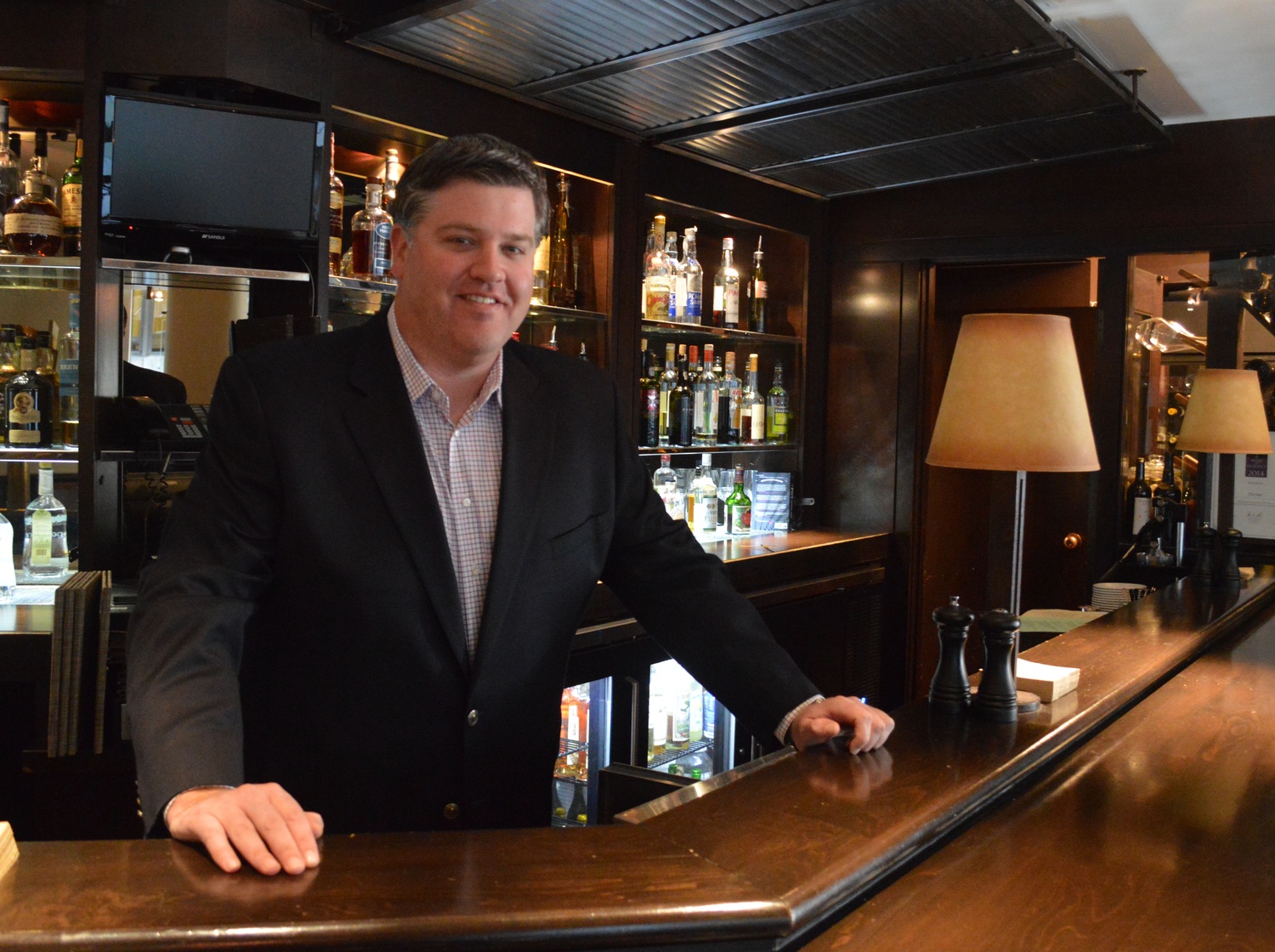
News
When Professors Speak Out, Some Students Stay Quiet. Can Harvard Keep Everyone Talking?

News
Allston Residents, Elected Officials Ask for More Benefits from Harvard’s 10-Year Plan

News
Nobel Laureate Claudia Goldin Warns of Federal Data Misuse at IOP Forum

News
Woman Rescued from Freezing Charles River, Transported to Hospital with Serious Injuries

News
Harvard Researchers Develop New Technology to Map Neural Connections
Farm to Harvard Square: Harvest Turns 40
Down an unassuming brick walkway off Brattle St., the glow of a red and green neon sign illuminates a simple glass facade. Inside—dimly lit, painted in natural tones, and covered in wood paneling—the restaurant feels worlds away from the bustle of Harvard Square.
Its tucked-away location belies the central role Harvest has played in the birth of New American cuisine since its founding in 1974. Before farmers markets and community gardens came in vogue, Harvest offered diners inventive fare made with ingredients local to New England.
Cozied up near one of the functioning fireplaces, parked in one of the bar’s red leather banquettes, or seated in the leafy patio out back during warmer months, patrons enjoy signature entrees like coffee roasted axis venison, free range guinea hen roulade, and pumpkin agnolotti. Other menu staples include the seafood raw bar and bread basket—filled with corn and Irish soda bread.
Though the restaurant has seen its ups and downs, current Executive Chef Mary Dumont has committed herself to honoring Harvest’s four-decade tradition of innovation. The menu changes with the seasons, and even longtime staples are constantly updated.

Indeed, 40 years in, Harvest is still pushing culinary boundaries and bringing people closer to the source of their food, restaurateurs and industry experts say. Establishments in Harvard Square and throughout the U.S. look to Harvest as a leader in the local food movement. In the words of Dumont, “Harvest was farm-to-table before that was even a term.”
A MOVEMENT’S FIRST COURSE
Though ubiquitous in today’s dining scene, the local food movement was novel at the time of Harvest’s founding. Other than Alice Water’s renowned Berkeley, Calif. restaurant, Chez Panisse, which was founded a few years earlier in 1971, Harvest represented an untested idea.
Original owners Ben and Jane Thompson shared a love of food and a desire to promote a different vision from the dominant hotel restaurant model of the time. The couple aimed to create the restaurant as they would have thrown a dinner party, current owner K. Christopher Himmel said.
“It was very forward thinking about things that we probably take for granted in restaurants today like heavy seasonality of menus, utilizing an herb garden, trying to work with more exotic meats,” Himmel said. “There really wasn’t an American restaurant...and the Harvest [was] really at the forefront of solidifying a whole different cuisine which is considered to be American cuisine today.”
According to Yale history professor Paul Freedman, who specializes in the history of cuisine, emphasizing seasonality and locality, farm-to-table cuisine was revolutionary in its noncompliance with traditional trends, which prioritized exotic foods.
“It seems so self-evident now, but we forget there was ever another definition of elegant food. Harvest is a big contributor to that, showing what wonderful things you can get if you pay attention to these local and seasonal qualities,” Freedman said.
During its early years, culinary legend Julia Child, a close friend of the Thompsons, frequently patronized Harvest, even celebrating her 90th birthday at the restaurant.
Despite celebrity endorsements from Child and others, the Thompsons' ownership ended in the mid-1980s, and the restaurant slid into decline, according to Himmel. When he took over the restaurant in 1998, Himmel said he was bent on returning Harvest to its founding principles and restoring its chef-focused cuisine.
“If you look at where we are today, it’s a renaissance of what went on in the 1970s up to the mid ’80s,” Himmel said. “We really made a decision when we had [Chef Dumont] join in 2007 to really focus on bringing the Harvest back to what it was and take it to another level.”
FROM FARM TO CAMBRIDGE’S TABLES
As Harvest transitioned back to its roots, its excellence in food innovation began to draw the attention of others in the increasingly dynamic, tight-knit Cambridge restaurant community, for which fresh, local ingredients have become the norm.
Chef Jody Adams, a James Beard Award-winning chef and creator of Rialto, located in the Charles Complex, is connected to Harvest by both business and blood. Not only did her husband work at Harvest as a server in his 20s, but she also credits the restaurant with helping to start a national movement that has paved the way for her own restaurant, offering Italian cuisine made with local ingredients.

“There is a restaurant that predates Rialto in terms of farm-to-table and that’s the Harvest,” Adams said. “It’s exciting now to see just how vibrant and relevant the whole notion of working with farms is.”
Alden & Harlow, winner of Boston Magazine’s best new restaurant of 2014 award, is close in proximity to Harvest, and there is also strong camaraderie between the two restaurants, according to Chef Michael Scelfo.
“They are without a doubt our closest friends,” Scelfo said. “I think when any restaurant has been open that long you have to take a step back...in this little pocket [of Harvard Square] there’s some legendary places in the Boston restaurant scene.”
Scelfo noted the prominence of the local food movement in the restaurant industry, though he said the expression farm-to-table has gone from its radical origins to being overused.
“I try and stay away from that expression these days,” Scelfo said. “I think that the term has become more of [public relations] hook. We are by definition farm-to-table...we just consider it smart sourcing, the way we order food.”
Chef Peter Davis of Henrietta’s Table said his restaurant and Harvest are also friendly, and credited Harvest with evolving throughout its multiple ownership changes.
“I’m happy for the Harvest and their anniversary, we’ve always been friends,” Davis said. “We’re all creating a better food system.”
With an uptick in restaurant quality, Executive Director of the Harvard Square Business Association Denise A. Jillson says Harvard Square has become a dining destination in recent years. She said that Google analytic reports show that when most people search for Harvard Square, they are typically looking for restaurants. In this competitive environment, farm-to-table eateries have prospered.
“These restaurants all want the freshest possible food to serve to the dining public. It’s a very competitive industry and you survive for 20 or 40 years the way Harvest has—not only survived but thrived—by having the freshest food,” Jillson said.
William Gilson, chef of Inman Square restaurant Puritan & Company, credited Cambridge’s unique intellectual environment in the success of the revolutionary farm-to-table movement.
“It’s the fact that two of the best schools in the country if not the world are on either end of the street that we’re on,” Gilson said. “With Harvard and MIT, we get to be exposed to different cultures that appreciate what we do here, and that’s one of the things that makes it possible.”
BRATTLE ST. AND BEYOND
Since Himmel and his ownership group took over Harvest in 1998, the restaurant has gone through two renovations, with a third planned for Jan. 2015. Along with a revamped bar menu, Harvest has continued to evolve, adding service on Thanksgiving Day and business lunch, among other changes.
Harvest has continued to attract a celebrity clientele—including Neil Patrick Harris, Justin Timberlake, and John Malkovich as patrons of the restaurant over the years. A scene at Harvest was even featured in Walter Isaacson’s biography of Steve Jobs.
“We give people a lot of privacy and they’ve really enjoyed themselves,” Dumont said. “Our celebrities are actually leaders of the world.... The Secret Service is actually kind of a regular presence here.”

Though tucked away in Harvard Square, Harvest enjoys the constant influx of prospective students, tourists, and visiting dignitaries. According to Freedman, these patrons foster an open-minded environment, one that is especially receptive to the innovative approaches of these restaurants.
“How many restaurants can you say are on the way to nowhere.... I think that plays into part of the appeal of it, you have to seek the restaurant out,” Himmel said
Dumont, who was recently made a partner at Harvest, has not stopped pushing boundaries beyond the walls of the restaurant. With an interest in food policy and the local community, Dumont and Harvest have worked with numerous youth groups including “Future Chefs,” which teaches urban children skills for work in the restaurant industry. Dumont has hired several graduates of the program.
“We try to look at the restaurant from a big picture.... It does affect the food world certainly and the things that I look forward to in the future are really working with organizations that give back and give back to the community and give back to Harvard Square,” Dumont said. “People look up to this restaurant [so] really just walking the walk.”
—Staff writer Ivan B. K. Levingston can be reached at Ivan.Levingston@thecrimson.com. Follow him on Twitter @IvanLevingston.
—Staff writer Celeste M. Mendoza can be reached at Celeste.Mendoza@thecrimson.com. Follow her on Twitter @CelesteMMendoza.
Want to keep up with breaking news? Subscribe to our email newsletter.


